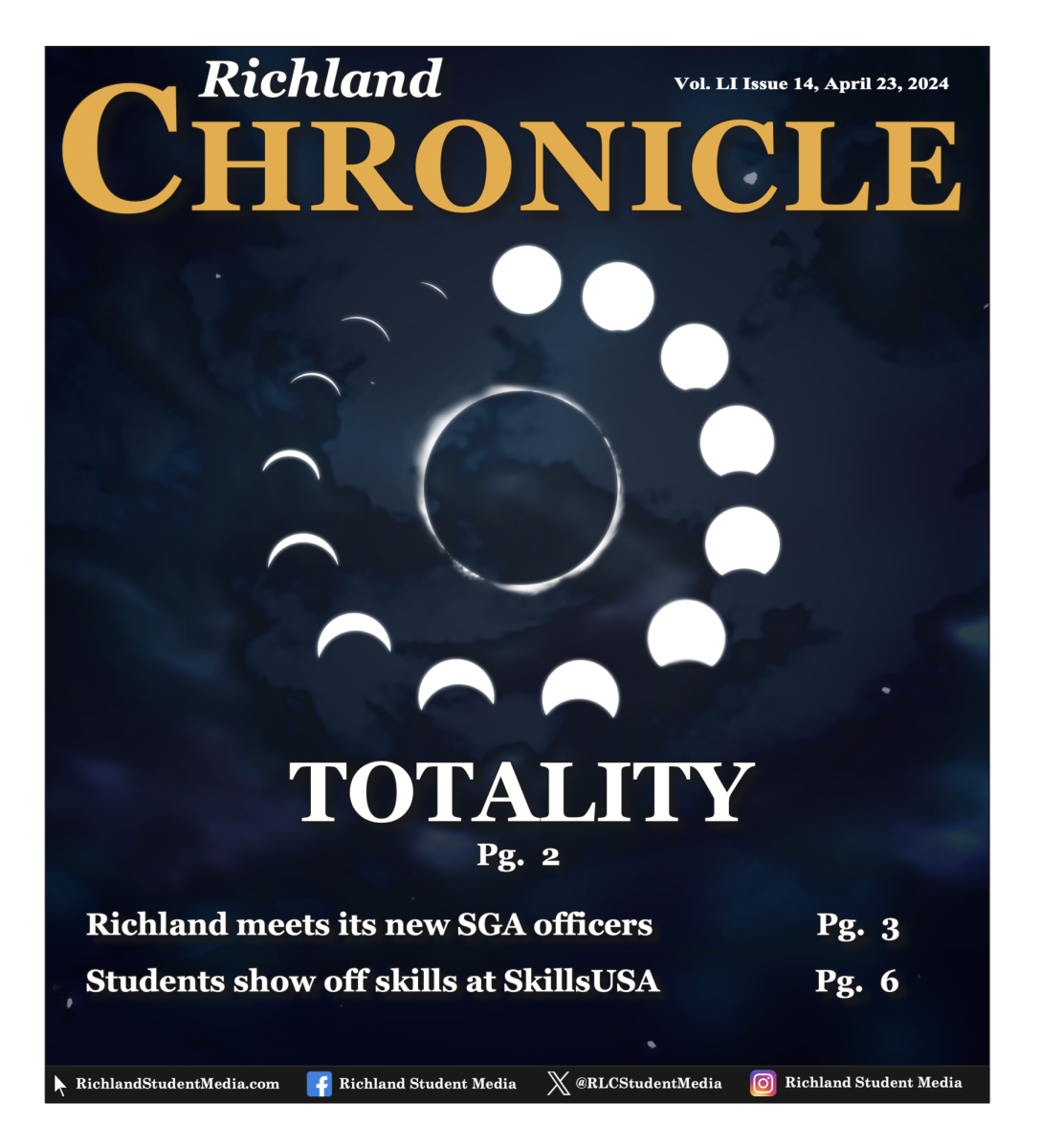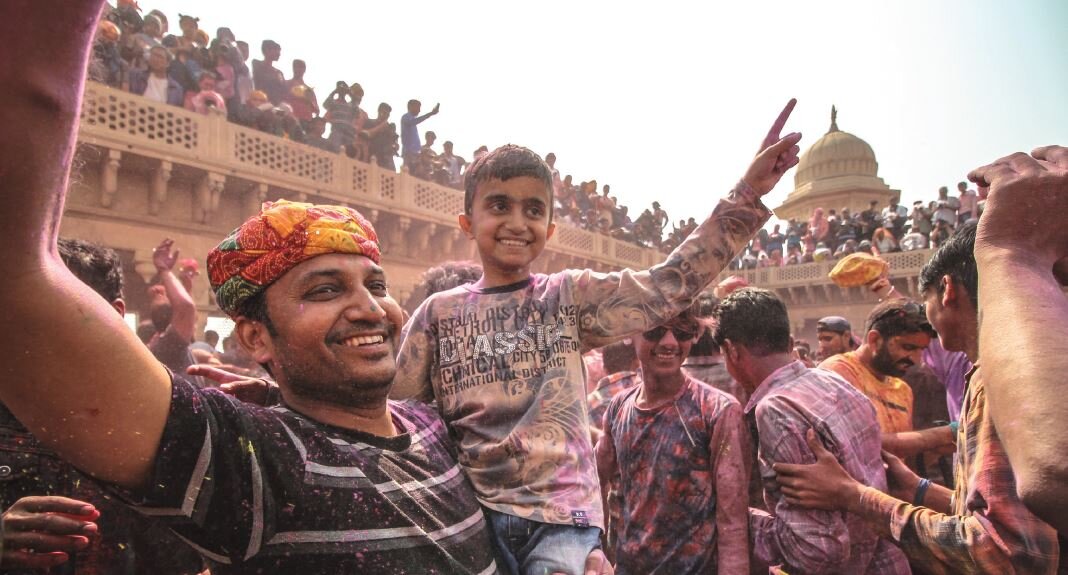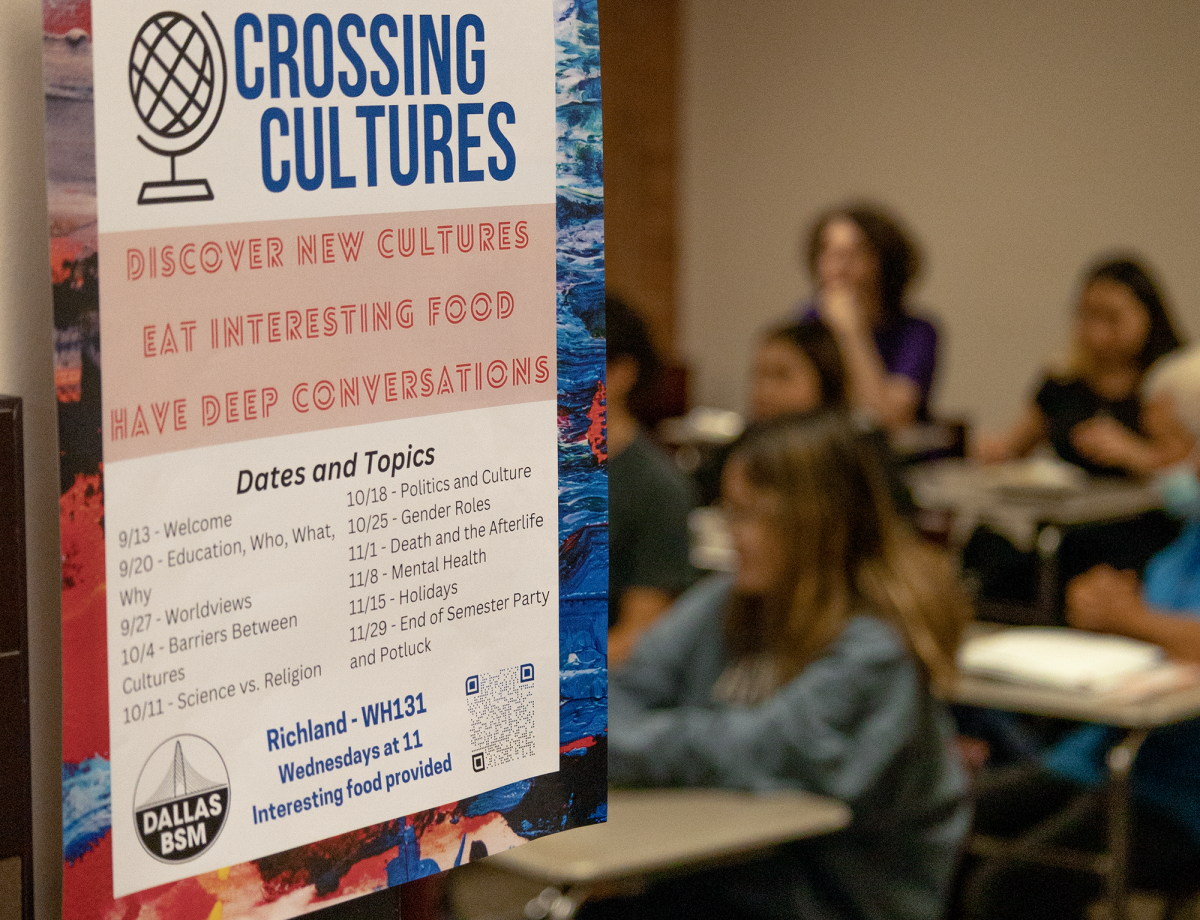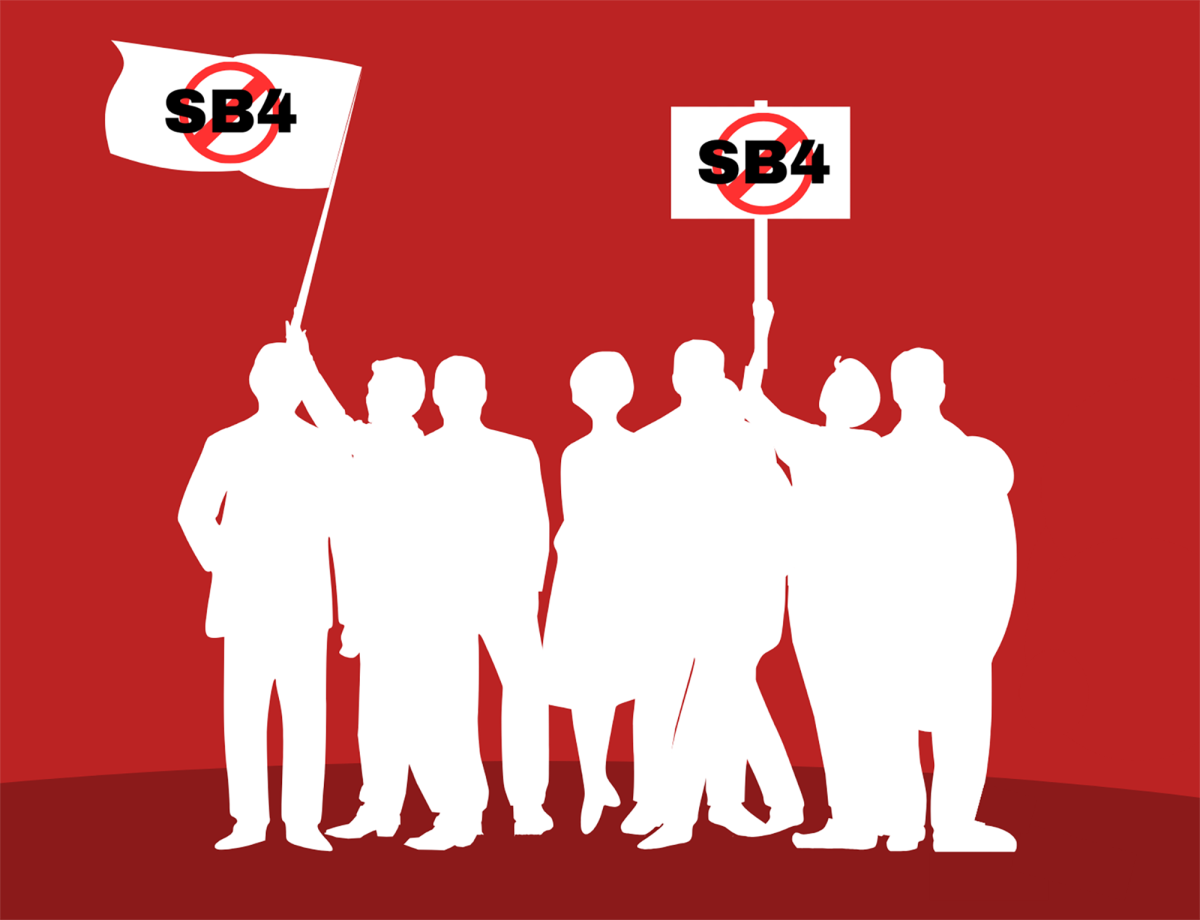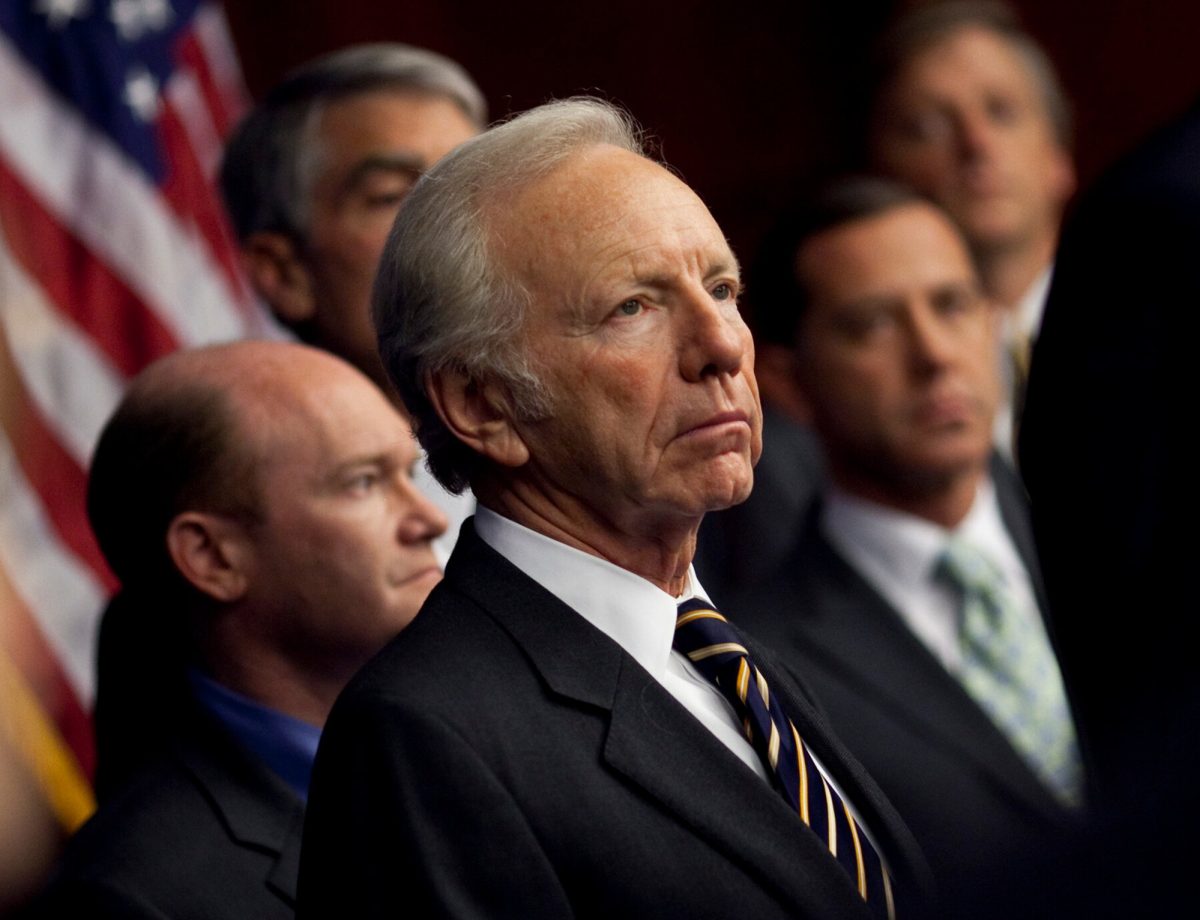For those who have taken a good look at their calendars for something other than the next Zoom meeting, or taken a step outside on a sunny day, they will notice that spring is in the air. In addition to blooming trees and flowers, it’s also the season for several major religious holidays. There are at least four major religious holidays from the months of March through May. What is everyone celebrating?
The story behind the spring holidays taking place over the next few weeks is a massive subject. The first on the calendar is the Jewish holiday of Passover, which began March 27 and continues April 4.
Holi took place on March 29 and celebrates the springtime where Earth returns to life from the “death” of winter.
“It’s usually associated with the meal that’s celebrated on the first evening, but it’s really a Passover week,” said John Ewing, a professor of World Religions at the Richland Campus. He explained that the Passover celebrates the Jewish people’s deliverance from slavery in Egypt, which is recorded in the book of Exodus in the Bible. Ewing explained that the meaning of the Passover meal is that “God delivers the Israelites through Moses from the bondage in Egypt,” adding that God also helped them find a land of their own.
The Passover meal features an unblemished lamb, unleavened bread and bitter herbs.
“The unleavened bread is interpreted in various ways, but the idea is that they have to eat this meal in haste,” Ewing said.
The Hebrews had no time for the usual prep work that went into making bread since they had to leave before the Pharaoh changed his mind again about letting them go. The bitter herbs cause one to “remember the bitterness of slavery,” Ewing said. He also explained that today many Jews celebrate the Passover by bearing in mind those people around the world who are experiencing injustice, as their people once did. The Passover is both a reminder of God’s deliverance and a challenge to improve the world.
Holy Week in the Christian tradition began on March 28. It’s a series of holidays clustered around Jesus’ life on Earth, his death and resurrection. Ewing said that during Holy Week, Christians “walk with Jesus and relive those last events” of Jesus’ life.
The two most important days of Holy Week are Holy Friday and Easter Sunday. Holy Friday commemorates Jesus’ death by crucifixion, through which Christians believe Jesus accomplished the salvation of humanity. Christians, Ewing explained, viewed Jesus as their “Passover lamb, without blemish, without sin and he’s the innocent sacrifice offered on behalf of the family, on behalf of the people.” Ewing went on to say “Holy Friday was usually a day of fasting because Jesus doesn’t eat anything from the point that he’s arrested.”
Easter Sunday commemorates Jesus’ resurrection from the dead. Ewing described the modern significance of Easter Sunday as a “celebration of the victory over death,” and that Jesus “is conquering death himself and therefore bestowing the resurrection on the rest of humanity.” Holy Week, then, is a reminder for Christians to reflect on the hope they have for the forgiveness of sins and the future promised by the resurrection.
Hindus, Sikhs and Hare Krishnas celebrate Holi. This year Holi took place on March 29. Ewing characterized Holi as a celebration of the “triumph of good over evil.” He also noted that Holi symbolizes and celebrates the spring, where the Earth returns to life from the “death” of winter. Participants celebrate Holi by spreading colorful powders all over one another and their environment. Celebrants traditionally sourced Holi colors from natural sources such as turmeric, but Ewing noted that synthetic colors also find use today. He described the holiday as “very jubilant, with instruments, chanting and dancing” and called it “fitting for spring.”
Ewing said that “Hinduism” is a “catchall” term for diverse indigenous Indian religious experiences. In other words, different stories featuring different gods and their association with Holi vary from region to region. But certain commonalities, such as the theme of good triumphing over evil, transcend regional lines.
He added that there exist interesting commonalities among these spring holidays that transcend religious lines.
Ramadan takes place during the ninth month of the Arabian lunar calendar, beginning on April 13 this year. Ewing described Ramadan as “a month of strict fasting during daylight hours.” He explained that “It’s not just fasting from food but also drinking liquid and, strictly speaking, that would include water.” Celebrants break their fast every evening after sundown with a meal called Iftar, accompanied by a time of prayer. During the fast, Ewing said, “Your focus is on God” and “your solidarity with the poor.”
He explained that many families today choose to set aside money that they would have otherwise spent on food or frivolities. Ramadan commemorates Mohammad’s reception of the first verses of the Quran when, as Ewing put it, “the revelation descends from heaven to Earth.” A major holiday called Eid al-Fitr marks the end of the month of fasting. It will take place on May 12 this year. He explained that Eid al-Fitr is “a feast of breaking the fast and enjoying a meal and celebration,” noting that “Some families will even give gifts to each other.” For Muslims, the month of Ramadan is a time for reflection, self-sacrifice and giving, but also for great celebration.
“People are very jubilant in the spring” Ewing said. However, each religious tradition bears inside itself its own unique story and its own reason for joy.


